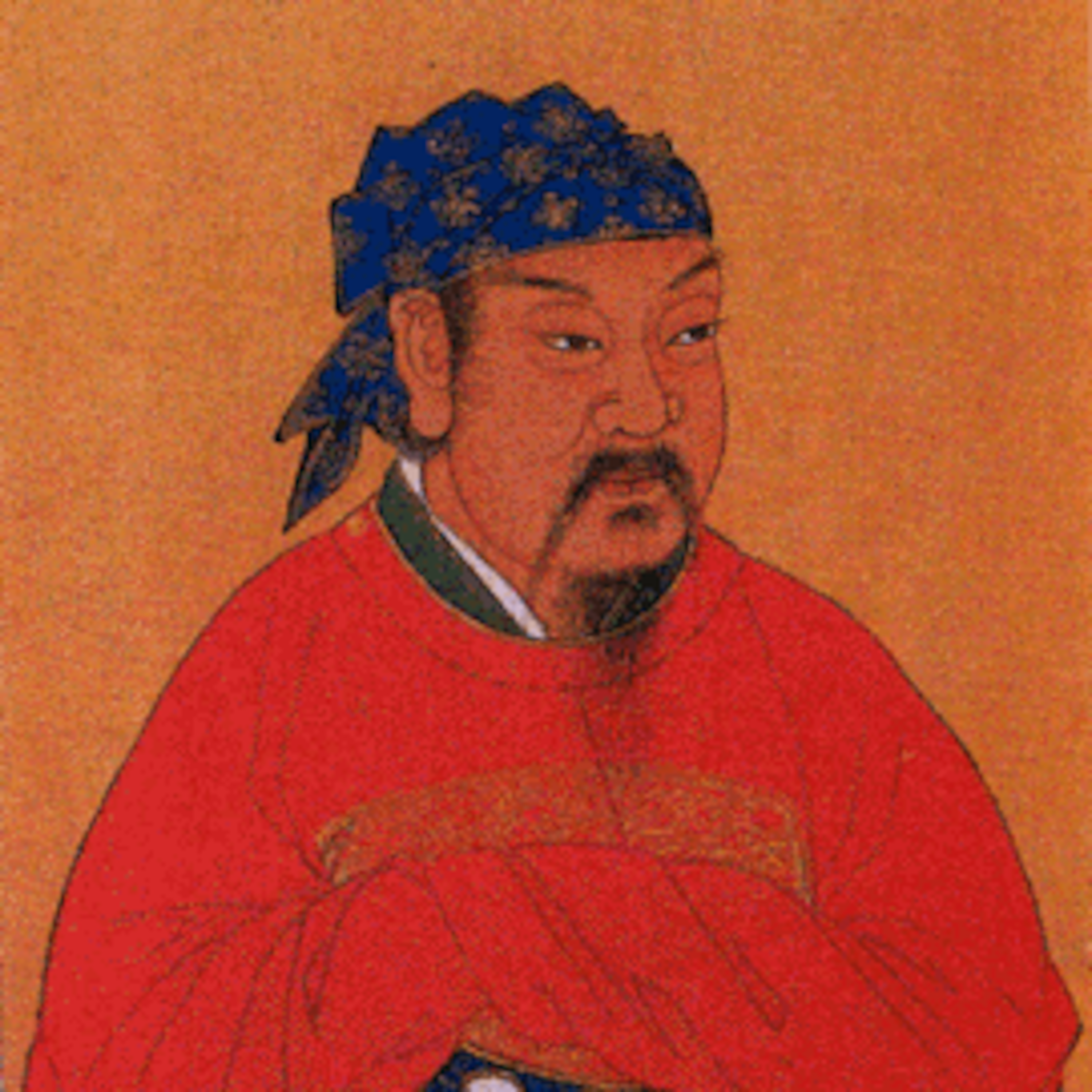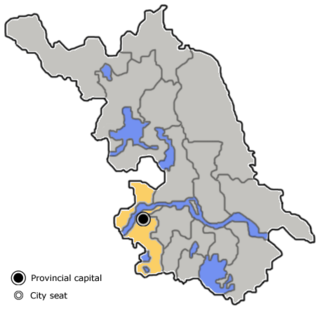The 140s decade ran from January 1, 140, to December 31, 149.
Year 144 (CXLIV) was a leap year starting on Tuesday of the Julian calendar. At the time, it was known as the Year of the Consulship of Rufus and Maximus. The denomination 144 for this year has been used since the early medieval period, when the Anno Domini calendar era became the prevalent method in Europe for naming years.
Year 145 (CXLV) was a common year starting on Thursday of the Julian calendar. At the time, it was known as the Year of the Consulship of Hadrianus and Caesar. The denomination 145 for this year has been used since the early medieval period, when the Anno Domini calendar era became the prevalent method in Europe for naming years.

Year 589 (DLXXXIX) was a common year starting on Saturday of the Julian calendar. The denomination 589 for this year has been used since the early medieval period, when the Anno Domini calendar era became the prevalent method in Europe for naming years.
Year 479 (CDLXXIX) was a common year starting on Monday of the Julian calendar. At the time, it was known as the Year of the Consulship of Zeno without colleague. The denomination 479 for this year has been used since the early medieval period, when the Anno Domini calendar era became the prevalent method in Europe for naming years.

Year 502 (DII) was a common year starting on Tuesday of the Julian calendar. At the time, it was known as the Year of the Consulship of Avienus and Probus. The denomination 502 for this year has been used since the early medieval period, when the Anno Domini calendar era became the prevalent method in Europe for naming years.

Year 386 (CCCLXXXVI) was a common year starting on Thursday of the Julian calendar. At the time, it was known as the Year of the Consulship of Honorius and Euodius. The denomination 386 for this year has been used since the early medieval period, when the Anno Domini calendar era became the prevalent method in Europe for naming years.
Year 317 (CCCXVII) was a common year starting on Tuesday of the Julian calendar. At the time, it was known as the Year of the Consulship of Gallicanus and Bassus. The denomination 317 for this year has been used since the early medieval period, when the Anno Domini calendar era became the prevalent method in Europe for naming years.

The Jin dynasty or the Jin Empire (; Chinese: 晉朝; pinyin: Jìn Cháo, sometimes distinguished as the Sima Jin or Liang Jin was a Chinese dynasty traditionally dated from 266 to 420. It was founded by Sima Yan, son of Sima Zhao, who himself was made the King of Jin and posthumously declared one of the founders of the dynasty, along with Sima Zhao's older brother Sima Shi and father Sima Yi. It followed the Three Kingdoms period, which ended with the conquest of Eastern Wu by Jin, culminating in the reunification of China.

The Liang dynasty (502–557), also known as the Southern Liang dynasty (南梁), was the third of the Southern Dynasties during China's Southern and Northern Dynasties period. It was located in East China and South China, and replaced by the Chen dynasty in 557. The small rump state Western Liang (555–587), located in Central China, continued until its annexation in 587.

Emperor Wu of Chen (陳武帝) (503–559), personal name Chen Baxian (陳霸先), courtesy name Xingguo (興國), nickname Fasheng (法生), was the first emperor of the Chen dynasty of China. He first distinguished himself as a Liang dynasty general during the campaign against the rebel general Hou Jing, and he was progressively promoted. In 555, he seized power after a coup against his superior, the general Wang Sengbian, and in 557 he forced Emperor Jing to yield the throne to him, establishing the Chen dynasty. He died in 559, and as his only surviving son Chen Chang was held by Northern Zhou as a hostage, he was succeeded by his nephew Chen Qian.
Duan Ye was the first king of Northern Liang of the Sixteen Kingdoms period in Chinese history. He was of Han ethnicity, and was originally a commandery governor of Later Liang, but after Xiongnu generals Juqu Mengxun and Juqu Nancheng (沮渠男成) rebelled against Later Liang, Juqu Nancheng persuaded Duan Ye to accept the leadership role of the rebellion. During his reign, the Juqus were powerful, and eventually, in 401, after Duan Ye was tricked by Juqu Mengxun into executing Juqu Nancheng, Juqu Mengxun used this as the excuse to start a coup against Duan Ye, killing him and replacing him as king. Duan Ye was described as a kind but weak ruler who was unable to keep his subjects in check, and who overly trusted witchcraft and magic.

Emperor Wu of (Liu) Song, personal name Liu Yu (劉裕), courtesy name Dexing (德興), nickname Jinu (寄奴), was a statesman and strategist of ancient China, and the founding emperor of the Chinese dynasty Liu Song. He came from a humble background, but became prominent after leading a rebellion in 404 to overthrow Huan Xuan, who had usurped the Jin throne in 403. After that point, using a mixture of political and military skills, Liu Yu gradually concentrated power in his own hands while expanding Jin's territory. In 420, he forced Emperor Gong of Jin to yield the throne to him, thus ending Jin and establishing Song. He ruled only briefly, for two years, before dying and passing the throne to his son, Emperor Shao of Liu Song.
Emperor Yuan of Liang, personal name Xiao Yi (蕭繹), courtesy name Shicheng (世誠), nickname Qifu (七符), was an emperor of the Chinese Liang Dynasty. After his father Emperor Wu and brother Emperor Jianwen were successively taken hostage and controlled by the rebel general Hou Jing, Xiao Yi was largely viewed as the de facto leader of Liang, and after defeating Hou in 552 declared himself emperor. In 554, after offending Yuwen Tai, the paramount general of rival Western Wei, Western Wei forces descended on and captured his capital Jiangling, executing him and instead declaring his nephew Xiao Cha the Emperor of Liang.
Xiao Yuanming (蕭淵明), courtesy name Jingtong (靖通), often known by his pre-ascension title of Marquess of Zhenyang (貞陽侯), at times known by his post-removal title Duke of Jian'an (建安公), honored Emperor Min (閔皇帝) by Xiao Zhuang, was briefly an emperor of the Chinese Liang Dynasty. He was the nephew of the founding emperor Emperor Wu. In 555, with Liang in disarray after Western Wei had captured and killed Emperor Yuan, Northern Qi, which had held Xiao Yuanming as an honored captive since 547, forced the general Wang Sengbian to accept Xiao Yuanming as emperor. Soon, however, Wang's subordinate Chen Baxian killed Wang and removed Xiao Yuanming from the throne, replacing him with Emperor Yuan's son Xiao Fangzhi. Xiao Yuanming died the following year.
Emperor Jing of Liang, personal name Xiao Fangzhi (蕭方智), courtesy name Huixiang (慧相), nickname Fazhen (法真), was an emperor of the Chinese Liang Dynasty. As the only surviving son of Emperor Yuan, he was declared emperor by the general Chen Baxian in 555, but in 557 Chen forced him to yield the throne and established Chen Dynasty. In 558, Chen had him killed.
Lady Bu, personal name Bu Lianshi, was a concubine of Sun Quan, the founding emperor of the state of Eastern Wu in the Three Kingdoms period of China. She has posthumously been honoured as an empress by Sun Quan. She is also known as Empress Bu.
Zhao Fu was the only son of Emperor Gaozong. He was Emperor of the Song dynasty for only 25 days before being deposed by a group of soldiers loyal to Emperor Gaozong.









